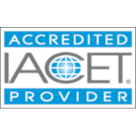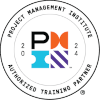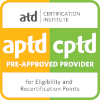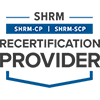Certificate Suite Details
Key Features
- Mobile-friendly
- Audio-enabled
- Badge and credit-awarding
- Simulation technology
- Fully accessible
- Real-world case studies
- Games & Flashcards
- Expert-supported
- Video content
Certificate Preview
Certificate Description
Learner Feedback
Courses Included in this Certificate
Course Description
Organizations are accountable for their diversity and inclusion goals. In this course, you will learn about HR metrics, predictive analytics, diversity training, diversity scorecards, and other tools that organizations use to identify biases, track the progress of initiatives, and gauge the effectiveness of policies. This course will explain how to use both soft and hard metrics to formulate, update, and implement diversity and inclusion goals. You will also learn about the importance of employee buy-in, diversity leaders, and C-suite support in achieving a diverse and inclusive workplace.
Course Credits
Course Description
Increasing workplace diversity necessitates strategies that foster more inclusive and equitable workplace practices. In this course, you will learn how leaders who want tangible, measurable results from diversity and inclusion initiatives must take an active role in supporting and implementing these strategies. You will explore how to use talent management systems and performance metrics to create a diverse workplace. This course illustrates that providing equal opportunities for continued engagement, including flexible work arrangements, mentorship programs, and employee benefits, is paramount for an organization's diversity and inclusion efforts to succeed.
Course Credits
Course Description
To achieve diversity and inclusion, organizations need to create an inclusive culture where all employees are respected and appreciated, have equal access to workplace opportunities, and are fairly compensated. In this course, you will learn about how to create, encourage, and develop an inclusive culture. You will explore the 7 Pillars of Inclusion, traits of an inclusive leader, strategies to assess employee buy-in, professional development opportunities, and workplace accessibility. You will examine how to uproot workplace toxicity and address and prevent harassment and discrimination. The course illustrates the many benefits of an inclusive culture, including higher levels of employee engagement, productivity, employee satisfaction, and retention rates.
Course Credits
Course Description
Inclusive cultures bring cultural awareness, belonging, and mental health to the forefront. Cultural awareness supports inclusivity because it empowers employees to work effectively with people from different demographics. With cultural awareness, organizations can foster a culture of belonging, facilitate collaboration, encourage decision-making, and support employee engagement. A culture of belonging includes employees being their authentic selves. Organizations encourage workplace authenticity and belonging when they support mental health initiatives, foster resilience, and create environments where employees are comfortable discussing mental health challenges. In this course, you will learn about these important aspects of an inclusive culture.
Course Credits
Course Description
Inclusive HR leaders foster more innovative and productive work environments. HR leaders play a key role in developing, changing, and reinforcing an organization's culture. They also assess and analyze the organization's current workforce diversity and set goals for overcoming challenges to inclusion. Perhaps most importantly, these HR professionals help other leaders develop inclusive competencies and strategies to improve performance and decision-making among teams.
This course explores inclusive leadership competencies for HR professionals, the application of these competencies within different business structures, the roles HR leaders play in developing inclusive organizational leaders, and the characteristics and benefits of inclusive leadership programs.
Course Credits
Course Description
Throughout each workday, HR professionals have opportunities to build inclusive work environments. Today's world requires HR managers to support D&I initiatives in different work models. Inclusive decision-making is an important component in creating work cultures that embrace diversity and belonging. This decision-making process increases innovation, engagement, and business performance. HR managers are also in key positions to build inclusive learning and development teams and learning content. This course explores strategies for transparent and inclusive decision-making, the building of inclusive learning and development teams, and ways to support diversity and inclusion in hybrid and remote work models.
Course Credits
Notes
This course has an "Ask the Expert" feature, which submits your questions directly to an expert in the field you are studying. Questions are answered as quickly as possible and usually within 24 hours.
As an Accredited Provider, MindEdge offers for its learning events that comply with the Continuing Education and Training Standard.
Learners must achieve an average test score of at least 70% to meet the minimum successful completion requirement and qualify to receive credit. Learners will have three attempts at all graded assessments.
Project Management Institute, , the Registered Education Provider logo, Project Management Professional, , Project Management Body of Knowledge, , Agile Certified Practitioner, -, Risk Management Professional, -, the Talent Triangle, and the Talent Triangle logo are marks of the Project Management Institute, Inc.
Information in this course has been taken from A Guide to the Project Management Body of Knowledge, (® Guide) - Sixth Edition, Project Management Institute Inc., 2017.
The following list outlines the you will earn for completing this course, based on the certifications you have.




